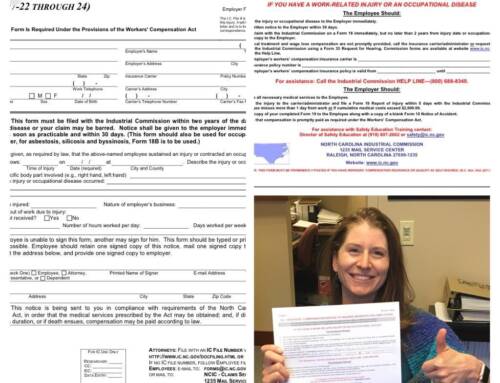If you are injured on the job, it is important to know what your potential benefits may be so you can limit your spending accordingly. Benefits are based on your average weekly wage over the previous year. The exact calculation is a little more complicated than just that, but the basic rule of thumb is that benefits are two-thirds of that weekly wage, but there is a cap. For example, if you made $75,000 a year in North Carolina, your weekly wage would be $1,442.31 a week. Two-thirds of that amount would be $961.59.
Can you get that amount in disability benefits while you are out of work? Not in this state. If your injury was in 2010, the maximum amount was capped at $834.00 ($43,368 a year) which would be a net loss of $608.31 a week ($31,632.12 a year) from your pre-injury weekly wage, and $127.59 less than two-thirds of your pre-injury wage. It’s hard to pay the mortgage when you suffer a wage loss of over $31,000 a year, and get disability benefits that pay closer to 58% instead of 66%.
In many other states the capped weekly amount is much lower than in North Carolina. For example, in 2010 the maximum amount allowed in Florida was $772.00; in Alabama it was $755.00; and in Louisiana it was $577.00.
There is also no cost of living increase in North Carolina, so if you are disabled through 2015 you will still be getting $835.00 a week, notwithstanding the rising cost of a gallon of gasoline or a gallon of milk. In the late 80’s a gentleman, paralyzed from the waist down, came into my office in a wheelchair. He had become totally disabled in 1971 and the maximum compensation rate back then was $56.00, which he was still getting each week. He wanted to know if he could get an increase in his benefits. The answer was no. Social Security Disability (the U.S taxpayer) probably ended up supplementing his ability to live, and absorbed the cost of his significant workplace injury. It was just another example of cost shifting from the insurance industry to the taxpayer.







